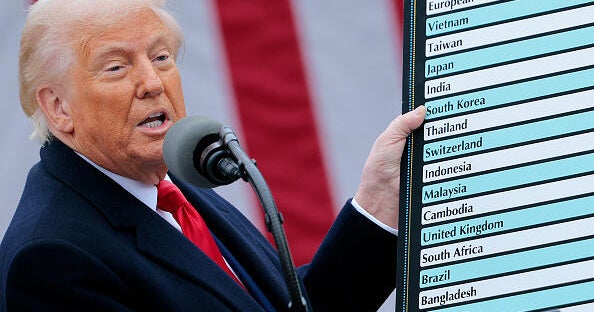As Small Business Month kicks off, the Chamber of Commerce is speaking out against the Trump administration’s trade policy, saying recently imposed tariffs could do serious damage to America’s Main Street.
In a letter sent to the Treasury Secretary Scott Bessent on Wednesday, Suzanne Clark, president and CEO of the Chamber of Commerce, asks for an “automatic exclusion” from new tariffs for U.S. small businesses that import goods from abroad. Small businesses do not have the margin or capital reserves to survive an increase in tariffs, Clark wrote in the letter.
“The Chamber requests the administration take immediate action to save America’s small businesses and stave off a recession,” she wrote.
The Trump administration’s tariff policies have raised economists’ expectations of a potential recession, although the U.S is in the clear for the time being. The International Monetary Fund in its World Economic Outlook said it does not expect the U.S. to enter a recession in 2025.
Clark added that tariffs could cause “irreparable harm” to the small business community if trade deals are not reached soon. Products from most countries are currently subject a 10% tariff, while products from China face a much steeper levy of up to 145%.
In an interview with Time magazine last week, President Trump said that trade deals would be reached in the “next three to four weeks.” In the meantime, small businesses are being forced to make difficult decisions about how to operate amid uncertainty as a result of on-and-off tariffs. One business owner who recently spoke to CBS MoneyWatch said she fears her company may have to close up shop for good.
Small and mid-sized businesses account for $868 billion in imports, according to the Wall Street Journal which cites data from the U.S Census Bureau.
Existential threat
If tariffs persist, small business owners could end up passing off the cost to customers in the form of higher prices, as large corporations such as Amazon, Temu and Shein have done in recent weeks. However, unlike with huge corporations, any declines in consumer spending as a result of higher prices would spell financial disaster for many small businesses, which operate under tight margins. In fact, 43% of small business owners said their companies would not survive if they fell short on revenue for three to four months, according to a recent TD Bank survey.
“The Chamber is hearing from small business owners every day who are seeing their ability to survive endangered by the recent increased in tariff rates,” Clark said in the letter to the Trump administration.
This isn’t the business community’s first bid for tariff relief. Senator Ed Markey, ranking member of the U.S. Senate Committee on Small Business and Entrepreneurship, sent a letter last week to the Small Business Administration (SBA) calling on the Trump administration to grant tariff exemptions to Main Street.
“These businesses simply do not have the financial cushion to absorb price shocks or the resources to navigate sudden changes to an already complex supply channel,” Markey wrote.

